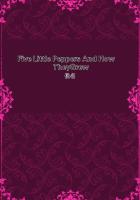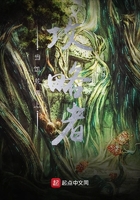The foregoing use of the word "ferociously" reminds me to remark that this artist is a master of passionate vehemence; in which aspect he appears to me to represent, perhaps more than in any other, an interesting union of characteristics of two great nations,--the French and the Anglo-Saxon. Born in London of a French mother, by a German father, but reared entirely in England and in France, there is, in his fury, a combination of French suddenness and impressibility with our more slowly demonstrative Anglo-Saxon way when we get, as we say, "our blood up", that produces an intensely fiery result. The fusion of two races is in it, and one cannot decidedly say that it belongs to either; but one can most decidedly say that it belongs to a powerful concentration of human passion and emotion, and to human nature.
Mr. Fechter has been in the main more accustomed to speak French than to speak English, and therefore he speaks our language with a French accent. But whosoever should suppose that he does not speak English fluently, plainly, distinctly, and with a perfect understanding of the meaning, weight, and value of every word, would be greatly mistaken. Not only is his knowledge of English--
extending to the most subtle idiom, or the most recondite cant phrase--more extensive than that of many of us who have English for our mother-tongue, but his delivery of Shakespeare's blank verse is remarkably facile, musical, and intelligent. To be in a sort of pain for him, as one sometimes is for a foreigner speaking English, or to be in any doubt of his having twenty synonymes at his tongue's end if he should want one, is out of the question after having been of his audience.
A few words on two of his Shakespearian impersonations, and I shall have indicated enough, in advance of Mr. Fechter's presentation of himself. That quality of picturesqueness, on which I have already laid stress, is strikingly developed in his Iago, and yet it is so judiciously governed that his Iago is not in the least picturesque according to the conventional ways of frowning, sneering, diabolically grinning, and elaborately doing everything else that would induce Othello to run him through the body very early in the play. Mr. Fechter's is the Iago who could, and did, make friends, who could dissect his master's soul, without flourishing his scalpel as if it were a walking-stick, who could overpower Emilia by other arts than a sign-of-the-Saracen's-Head grimness; who could be a boon companion without ipso facto warning all beholders off by the portentous phenomenon; who could sing a song and clink a can naturally enough, and stab men really in the dark,--not in a transparent notification of himself as going about seeking whom to stab. Mr. Fechter's Iago is no more in the conventional psychological mode than in the conventional hussar pantaloons and boots; and you shall see the picturesqueness of his wearing borne out in his bearing all through the tragedy down to the moment when he becomes invincibly and consistently dumb.
Perhaps no innovation in Art was ever accepted with so much favour by so many intellectual persons pre-committed to, and preoccupied by, another system, as Mr. Fechter's Hamlet. I take this to have been the case (as it unquestionably was in London), not because of its picturesqueness, not because of its novelty, not because of its many scattered beauties, but because of its perfect consistency with itself. As the animal-painter said of his favourite picture of rabbits that there was more nature about those rabbits than you usually found in rabbits, so it may be said of Mr. Fechter's Hamlet, that there was more consistency about that Hamlet than you usually found in Hamlets. Its great and satisfying originality was in its possessing the merit of a distinctly conceived and executed idea.
From the first appearance of the broken glass of fashion and mould of form, pale and worn with weeping for his father's death, and remotely suspicious of its cause, to his final struggle with Horatio for the fatal cup, there were cohesion and coherence in Mr.
Fechter's view of the character. Devrient, the German actor, had, some years before in London, fluttered the theatrical doves considerably, by such changes as being seated when instructing the players, and like mild departures from established usage; but he had worn, in the main, the old nonde dress, and had held forth, in the main, in the old way, hovering between sanity and madness. I do not remember whether he wore his hair crisply curled short, as if he were going to an everlasting dancing-master's party at the Danish court; but I do remember that most other Hamlets since the great Kemble had been bound to do so. Mr. Fechter's Hamlet, a pale, woebegone Norseman with long flaxen hair, wearing a strange garb never associated with the part upon the English stage (if ever seen there at all) and ****** a piratical swoop upon the whole fleet of little theatrical preions without meaning, or, like Dr.
Johnson's celebrated friend, with only one idea in them, and that a wrong one, never could have achieved its extraordinary success but for its animation by one pervading purpose, to which all changes were made intelligently subservient. The bearing of this purpose on the treatment of Ophelia, on the death of Polonius, and on the old student fellowship between Hamlet and Horatio, was exceedingly striking; and the difference between picturesqueness of stage arrangement for mere stage effect, and for the elucidation of a meaning, was well displayed in there having been a gallery of musicians at the Play, and in one of them passing on his way out, with his instrument in his hand, when Hamlet, seeing it, took it from him, to point his talk with Rosencrantz and Guildenstern.
This leads me to the observation with which I have all along desired to conclude: that Mr. Fechter's romance and picturesqueness are always united to a true artist's intelligence, and a true artist's training in a true artist's spirit. He became one of the company of the Theatre Francais when he was a very young man, and he has cultivated his natural gifts in the best schools. I cannot wish my friend a better audience than he will have in the American people, and I cannot wish them a better actor than they will have in my friend.













